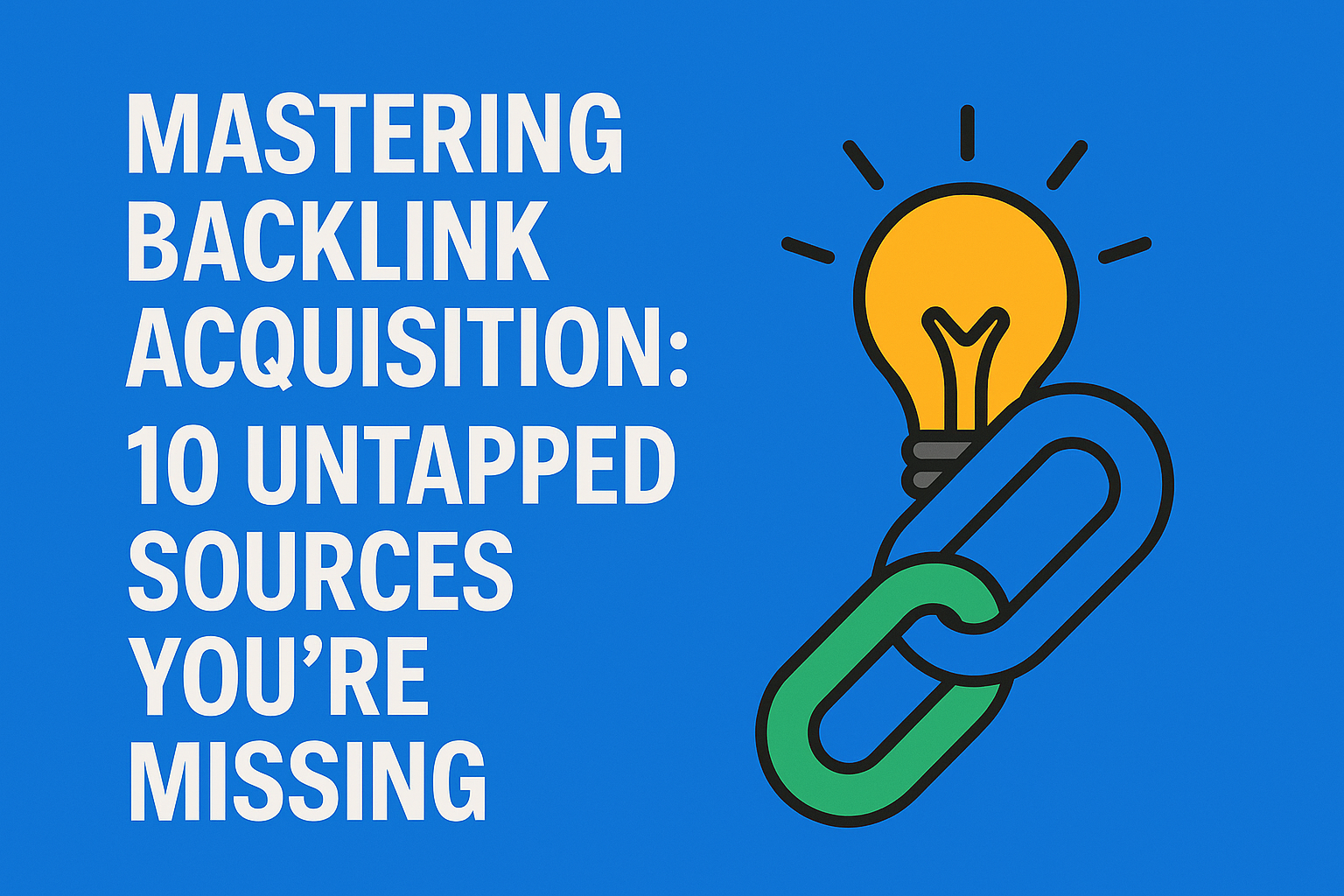
Introduction
Backlinks remain the cornerstone of SEO success, but the same old tactics—guest posts, broken links, blog comments—are oversaturated. In 2025, the real edge comes from tapping into unconventional sources your competitors ignore. If you’re ready to break free from the link-building hamster wheel, let’s dive into fresh, actionable strategies that work—even with limited resources.
1. Niche Subreddit Roundups
Reddit hosts countless niche communities that often curate weekly or monthly “best of” threads. Search terms like “roundup,” “top posts this week,” or “resource list” in relevant subreddits to find these goldmines.
💡 Pro Tip: Engage authentically in discussions before pitching your content. Genuine contributions earn organic mentions.
2. Micro-Blogger Brand Mentions
Big brands track unlinked mentions on major sites, but small blogs and micro-influencers are low-hanging fruit. Use free tools like Google Alerts or Mention to catch these mentions. A polite “Hey, mind adding a link?” often works wonders.
3. Free Tool & Template Directories
Create a simple but valuable tool (e.g., a keyword difficulty checker) or template (e.g., a backlink outreach email swipe file). Submit it to directories like All-Free-Downloads or niche-specific resource hubs. These pages thrive on linking to helpful freebies.
4. Crowdsourced Data Hubs
Sites like Statista or niche data platforms accept user-submitted stats. Run a quick LinkedIn poll or Google Survey, publish the findings on your blog, then submit them as original research. Bonus: Others will cite your data, earning you even more links.
5. Forum Threads with Built-In Search Traffic
Forums like Quora or StackExchange have internal search engines. Identify trending questions in your niche, craft detailed answers, and drop a relevant link. Over time, these threads rank in Google, pulling in passive backlinks.
6. Speaker Profile Pages
Even small webinars or local events often link to speakers’ websites. Add your speaking gigs to platforms like SpeakerHub or Sessionize. Pro tip: Update your LinkedIn profile with past events—organizers often scrape these for their speaker pages.
7. Startup “Tool Stack” Blog Posts
Startups love sharing their tech stacks. Pitch a case study or testimonial on how your product/service solved their problem. Many will link back in their “Tools We Use” posts, often with a dofollow homepage link.
8. Podcast Show Notes (Without Being a Guest)
Niche podcasts with smaller audiences (<5k listeners) need quality resources. Email hosts with a note like, “Loved your episode on [topic]—here’s a free template/article that listeners might find helpful.” Most will gladly add it to their show notes.
9. Industry-Specific Local Directories
Forget generic directories. Target local chambers of commerce, alumni networks, or trade associations. Example: A bakery could list itself in the Artisan Bakers Guild directory for a local SEO boost.
10. Indie Newsletters
Newsletters on Substack or Beehiiv are hungry for fresh content. Pitch writers with a unique angle: “I’ve got a time-saving SEO checklist your readers would love.” These links often come from low-competition, high-authority pages.
Conclusion: Break the Mold for Better Backlinks
Stop fighting for links in crowded spaces. These 10 strategies thrive on creativity and relationship-building, not budgets or spammy tactics. Focus on adding value first—the backlinks will follow.
✅ Your 2025 Backlink Checklist
- 🔗 Engage in niche Reddit roundups
- 📣 Convert micro-blogger mentions to links
- 🛠 Submit free tools to resource hubs
- 📊 Share original stats on data platforms
- 💬 Answer forum questions with value-packed links
- 🎤 Leverage speaker profile pages
- 🧰 Pitch startup “tool stack” features
- 🎙 Suggest resources to podcasters
- 🗺 Join industry-specific directories
- 📰 Partner with indie newsletters
- 💡 Ready for More?
👉 Join our newsletter for weekly offbeat SEO tactics
👉 Schedule a backlink audit to uncover hidden opportunities on your site